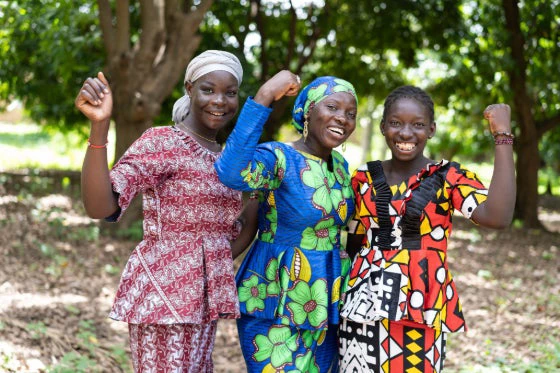Cultural norms often enforce traditional gender roles, limiting women's influence and involvement in decision-making processes. These norms are frequently supported by outdated discriminatory laws put in place by colonial powers, which persist today. However, these rules do not need to remain static.
For example, Côte d’Ivoire and Gabon undertook significant overhauls of their laws, setting a precedent as the first two SSA economies to score over 90 on the “Women, Business and the Law index”. Also, Gabon’s mandate for equal pay marks a monumental step forward for women’s equal treatment under the law. Meanwhile, Senegal opened new job opportunities for women by removing constraints on their work in industrial jobs.
While addressing the critical issue of gender-based violence, the Republic of Congo and Côte d’Ivoire took monumental steps by adopting laws specifically targeting domestic violence. These comprehensive laws encompass various forms of abuse, ensuring criminal penalties and protective measures against perpetrators. Also, Benin and Côte d’Ivoire championed women’s financial inclusion by prohibiting gender-based discrimination in financial services.
Challenges are strongest in areas where deeply rooted societal gender norms persist, like patriarchal property regimes and expectations about women’s caretaking responsibilities. Despite these hurdles, Malawi granted fathers a significant two weeks of fully paid paternity leave, a crucial step to promote more equal distribution of parental involvement. Uganda's 2022 Succession (Amendment) Act stands as a landmark achievement, redressing historical imbalances in inheritance law. The Act now provides equal rights to men and women, having removed antiquated provisions that favored sons over daughters and denied widows their rightful entitlements.
Data that triggers change
The “Women, Business, and the Law” (WBL)—the World Bank Group’s project collecting data on laws and regulations that affect women’s economic opportunity—serves as a potent tool to promote legislative reforms for gender equality. By offering insights into legal disparities across various economies throughout eight indicators, the “Women, Business and the Law” data empower civil society organizations (CSOs), governments, and policymakers to identify gaps, monitor progress, and advocate for change in legislation affecting women's rights.
For example, the “Women, Business and the Law” team recently facilitated workshops engaging governments, the private sector, and CSOs in Botswana and Mozambique. In Botswana, recent legislative strides like equal rights to tribal land under Land Policy revisions, the Economic Inclusion Act, and judicial reform to protect women from violence were discussed. In Mozambique, CSO participants emphasized how tools like the “Women, Business and the Law” index help to monitor legal progress and identify persistent gender gaps.
World Bank teams equally make use of the data to craft policy interventions for women’s economic empowerment. For example, Sierra Leone's 2022 Inclusive and Sustainable Growth Development Policy Operation spearheaded reforms to outlaw sex-based discrimination in financial services. Likewise, Benin integrated “Women, Business and the Law” insights into its Unlocking Human and Productive Potential Development Policy Operation, pinpointing legal gaps related to gender-based violence.
Next steps: Putting gender equality first
The Executive Director’s Office of the Africa Group 1 constituency, which represents 50% of Sub-Saharan Africa, confirmed its dedication to gender equality in SSA at the Constituency Meeting World Bank/IMF Annual Meetings in Marrakesh, Morocco, in 2023. The Constituency’s Annual Report and the Foreword from the Executive Director featured the progress made by Sub-Saharan Africa on the WBL index and reaffirmed the constituency’s resolve.





Join the Conversation